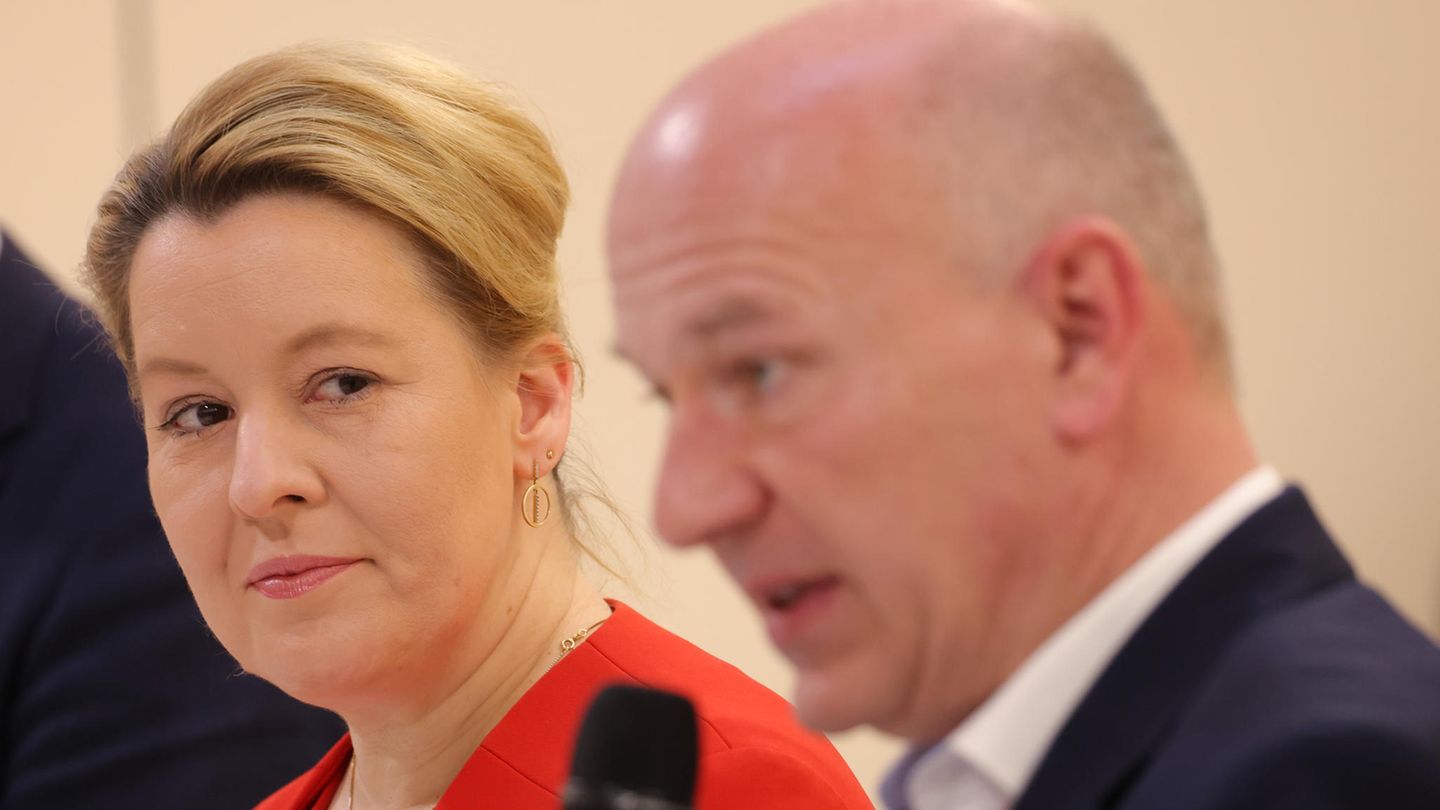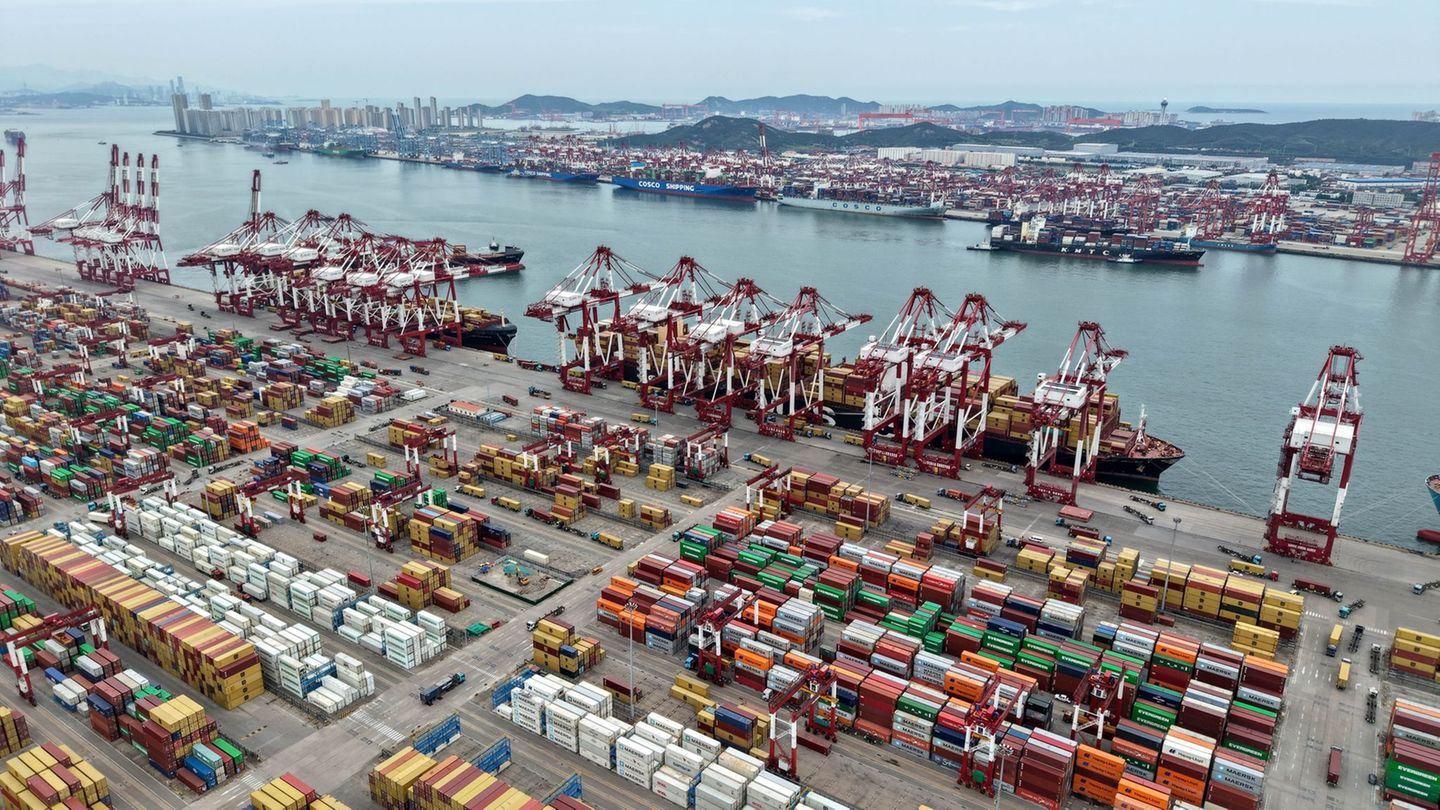If the members of the Berlin SPD voted against a coalition with the CDU, the Social Democrats would probably not leave a stone unturned. And the capital could become politically paralyzed. In the event of a rejection, there would also be winners.
The last chance was on Friday evening at 11:59 p.m. At midnight, the SPD’s Kurt Schumacher House in Berlin’s Wedding closed. Only ballot papers that have arrived at the head office of the state association in the capital by then will be counted.
Around 19,000 Social Democrats were asked to cast their vote in the past few weeks: should the SPD govern Berlin as a junior partner with the CDU for the next three years? Yes or no?
Berlin SPD votes on coalition with the CDU
The votes will be counted from Sunday, and the result of the member survey should be announced on the same day or on Monday at the latest. The party conference of the Berlin CDU will vote on the negotiated coalition agreement on Monday. If both parties agree, the alliance should be signed on Wednesday. The latest debates show that this is far from a foregone conclusion, especially in the SPD. Nobody dared to make a serious prognosis about the vote of the members until the end.
There is considerable resistance to the planned alliance with the CDU in several district associations, in the SPD youth organization Jusos and in trade unions. Among other things, the contract has been criticized for the planned expansion of police surveillance and a car-centric traffic policy. This cuts the SPD’s breath off, said Juso state chairwoman Sinem Taşan-Funke of the DPA news agency.
But what if the majority of the comrades refuse to approve the coalition agreement? Then both Berlin’s state politics and the capital’s SPD with the still mayor Franziska Giffey are heading for turbulent times – there would be many losers, but also some laughing winners.
Possible losers
- Berlin state politics: The previous red-green-red Senate would remain in office for the time being – with the Governing Mayor Franziska Giffey. Berlin’s state constitution does not stipulate when a new government must be in place after an election in the capital. But there is a risk of further standstill in Berlin’s state politics. Controversial decisions would probably not be made at all, the metropolis would only be administered for weeks or months, not designed.
- Franziska Giffey: Even if she remains in office if the coalition agreement fails, her political fate is likely to be sealed for the time being if she votes no. The current chairwoman of the Berlin SPD had spoken out vehemently in favor of black and red, but at the same time was responsible for the disastrous performance of her party in the repeated parliamentary elections. If the members do not follow her, she should not only lose her position in the Red Town Hall, but also that at the head of her state association. “In the event of a rejection, hardly a stone will be left unturned in the party,” analyzed the Berlin “Tagesspiegel”.
- Kai Wegner: The head of the Berlin CDU would have to bury his dream of the office of governing mayor: if the SPD says no, he would be left blank. Another coalition partner for the Christian Democrats is not available. Wegner would once again have to be content with the role of opposition leader in the House of Representatives – despite an election result that was very good for him and his party.
Berlin House of Representatives
Impressions of the breakdown election of 2021 – and how it should be better this time
Possible Winners
- SPD base: A no to a coalition agreement with the CDU would be a triumph for the (left) base of the Berlin SPD over the party leadership. She could gain influence in the party through a rejection, which would then have to be rearranged – and even hope for a continuation of red-green-red.
- Green and Left: Since the AfD, as the parliamentary group, is excluded from all other parties, there are still two (theoretical) options if the black-red coalition agreement fails: a continuation of the SPD-Green-Left coalition or an alliance between the CDU and the Greens. The latter is considered unlikely, since the Greens – like the Left – have already made it clear that they would like to continue Red-Green-Red. In terms of content, the three parties are closer than the CDU and SPD anyway. With a weakened SPD at their side, the Greens and the Left could push through important political goals.
- Kevin Kuehnert: The Secretary General of the Federal SPD could emerge as the beaming victor from the possible shambles – if he really wanted to. For a long time there has been more or less open talk in Berlin state politics that in the event of a no, Kevin Kühnert could fill the gap that Giffey would leave behind in the Berlin state association and possibly also in the Red City Hall – especially party leftists would welcome this. Whether he would actually say goodbye from federal to state politics is anything but certain. Kühnert commented on the corresponding rumors some time ago in the “Bild” newspaper: “Quark.”
There is a lot at stake in the SPD membership vote for everyone involved. The ballot papers are ready for counting in sealed ballot boxes in the Kurt Schumacher House. One thing was certain, at least on Friday morning: the vote of the SPD members will be binding, because the necessary quorum of 20 percent of those entitled to vote had already been significantly exceeded at 62 percent. The leadership of the Berlin SPD will have to stick to the result – with all its consequences.
Sources: , (paid content), DPA news agency
Source: Stern
I have been working in the news industry for over 6 years, first as a reporter and now as an editor. I have covered politics extensively, and my work has appeared in major newspapers and online news outlets around the world. In addition to my writing, I also contribute regularly to 24 Hours World.




